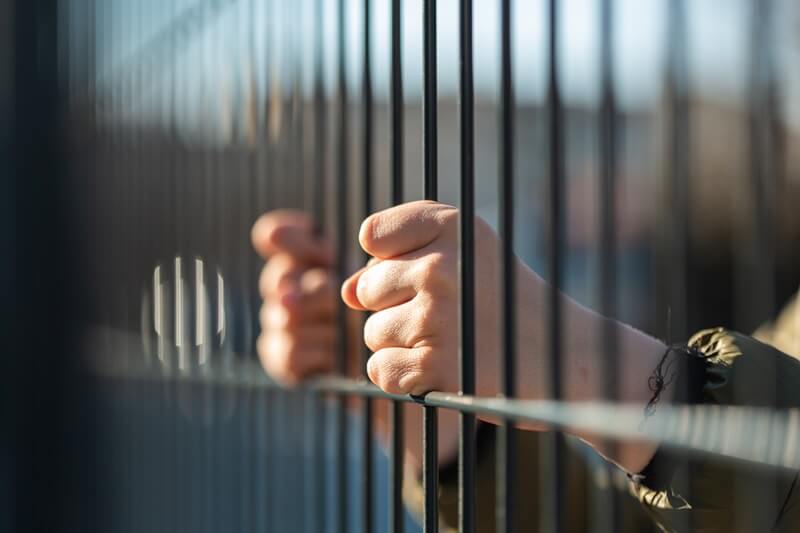Deportation Lawyer Shows VAWA Can Be A Defense For Removal
An abusive relationship paired with the threat of deportation creates constant fear and anxiety. Many noncitizens don’t realize they may have a lifeline in these dark situations. The Violence Against Women Act (VAWA) offers significant protection that can allow you to remain in the U.S. while breaking free from your abuser.
If you are facing removal proceedings and have experienced domestic abuse, this article guides you on how VAWA can protect you. Discover who qualifies, the general defense process, and how a deportation lawyer can strengthen your case.

The Relationship Between VAWA & Immigration
The Violence Against Women Act (VAWA), passed in 1994, protects domestic violence survivors and extends its impact beyond criminal law. It allows individuals to leave their abusers and seek legal protection while staying in the U.S., regardless of immigration status.
Abusive individuals often control a family member’s immigration status, threatening to withhold Green Card sponsorship or report them to immigration authorities. With this, many survivors of domestic abuse face removal proceedings for reasons beyond their control.
VAWA breaks this cycle by enabling survivors to self-petition for legal status, free from their abuser’s influence. It provides a path to escape the violence and remain in the U.S. without relying on the abuser for immigration sponsorship. VAWA acknowledges that domestic violence survivors should not be forced into unsafe or unstable situations.
In deportation proceedings, VAWA can serve as a defense and help survivors remain in the U.S. It allows eligible individuals to apply for cancellation of removal, providing a critical option for survivors without other legal means to avoid deportation.
VAWA-Based Cancellation Of Removal
The VAWA Cancellation of Removal offers relief for noncitizen victims of domestic abuse who face deportation proceedings. This option differs from a VAWA self-petition, which allows individuals not in deportation proceedings to apply voluntarily. Noncitizens may use VAWA cancellation as a defense in immigration court.
Cancellation of removal acts like a waiver, allowing certain individuals with strong ties to the U.S. to remain if they meet specific qualifications. For abuse victims, VAWA-based cancellation offers a pathway to permanent residency. However, it only applies to those charged with an immigration violation and placed in deportation proceedings.
If the immigration judge grants your application, you will obtain Lawful Permanent Resident (LPR) status. If the judge denies it, you will typically face removal from the country. Given the high stakes, legal representation becomes essential.
Presenting a solid case for VAWA cancellation requires meeting strict legal criteria, which makes it risky for survivors to attempt to do so independently. Skilled deportation lawyers familiar with VAWA cases can help you build a strong defense and ensure eligibility.
Eligibility Criteria For Victims Facing Deportation
VAWA cancellation offers broader eligibility than affirmative self-petition, protecting those in more complex family situations. To qualify, you must meet several criteria that demonstrate the abuse, your ties to the U.S., and other legal standards.
- Abuse Or Extreme Cruelty: You have experienced battery or extreme cruelty by a U.S. citizen or an LPR spouse, parent, or child.
- Continuous Presence: You have lived in the U.S. for over three years before being placed in removal proceedings.
- Good Moral Character: You have demonstrated good moral character during the previous three years.
- Extreme Hardship: Your removal would cause extreme hardship to you, your children, or your parents.
- No Grounds Of Inadmissibility: You are not subject to any grounds of inadmissibility under U.S. immigration law, such as criminal convictions or immigration violations.
Apart from these general criteria, specific qualifications increase eligibility for cancellation of removal compared to self-petitioning. For example, a parent of an abused child qualifies for VAWA cancellation regardless of the child’s citizenship or the parent’s marital status with the abuser.
In spousal relationships, the spouse qualifies for cancellation even if the abuser died or if they divorced the abuser more than two years ago. Additionally, an abused spouse or child qualifies if their abuser renounced their citizenship or lost LPR status over two years ago.
For child abuse victims, adult children (over 21) do not qualify for affirmative VAWA but may be eligible for cancellation if they can demonstrate the abuse. A stepchild victim whose noncitizen parent divorced the abusive parent over two years ago also qualifies.
Meeting these qualifications forms the foundation of a strong VAWA claim. If you are unsure about your eligibility, consult a lawyer for deportation cases to confirm your qualifications. Securing legal guidance can equally help you defend your case in court and offer hope for a more secure future.
VAWA As A Defense Against Deportation
Noncitizens facing deportation can use VAWA cancellation of removal as a strong defense. This process occurs in immigration court and involves several steps before the court decides whether to grant relief. Here is a clear outline of the legal process that begins once you pursue VAWA cancellation during removal proceedings.
Notice To Appear (NTA)
Receiving an NTA from the Department of Homeland Security (DHS) requires you to appear in immigration court to defend against removal. This document outlines immigration violations, such as overstaying aVisa or unauthorized entry. It also specifies the date, time, and location of your immigration court hearing, as well as the legal grounds for deportation.
Master Calendar Hearing
In the master calendar hearing, the judge reviews the charges against you. You must respond to these charges and declare your intent to seek VAWA cancellation through an immigration lawyer. If the formal application is not yet prepared, the immigration deportation lawyer may request more time to complete and submit it.
Individual Hearing
You present evidence and testimony to support your VAWA cancellation claim during the individual hearing. The judge reviews the abuse you experienced, your moral character, and how deportation would affect you and your family. You may also use witnesses or affidavits to strengthen your case.
Decision By The Immigration Judge
The immigration judge reviews the evidence and makes a decision. If granted, you receive lawful permanent resident (LPR) status. If denied, deportation proceeds, but you can appeal the decision and continue fighting your case with legal support.
Understanding this streamlined process is essential for survivors seeking to stay in the U.S. under VAWA protection. To successfully navigate your case, consider partnering with an experienced deportation lawyer.
Significant Advantages Of Deportation Lawyers
The complexities of immigration law make handling VAWA cases difficult without help. An experienced deportation attorney provides essential support in these cases. Enlisting one greatly improves your chances of securing a more stable and independent life in the U.S.
Navigating Legal Challenges
An immigration attorney experienced in VAWA cases handles every detail efficiently, from submitting the correct forms to meeting all deadlines. Their deep knowledge of immigration policies enables them to apply strategies that protect you from deportation and help you regain your chance at the American dream.
Building A Strong Case
Proving eligibility for VAWA cancellation requires gathering compelling evidence, which often proves challenging for abuse survivors. A lawyer helps gather and prepare essential documentation and non-traditional forms of evidence. This holistic approach strengthens your case and demonstrates to the immigration court that you qualify for relief.
Managing Court Procedures
Immigration court procedures are formal and can intimidate those unfamiliar with the system. A seasoned attorney helps you attend necessary hearings and understand what to expect at each stage. This guidance reduces the chances of mistakes that could harm your case and keeps the process running smoothly.
Achieving Long-Term Benefits
A successful VAWA cancellation stops deportation and opens the door to additional benefits. Survivors can receive a work permit and eventually apply for lawful permanent residency. More importantly, gaining legal status provides emotional relief and allows you to rebuild your life without fearing separation from loved ones.
An attorney’s guidance proves essential for navigating removal challenges. Avoid leaving your chances to luck. Seeking the skills and support of a reputable law firm is a sensible move at this challenging time.
Lincoln-Goldfinch Law – Abogados de Inmigración Helps You Fight Removal

If you’re facing deportation, getting legal help is the most reasonable way to defend yourself. At Lincoln-Goldfinch Law – Abogados de Inmigración, we understand how devastating the prospect of removal can be, especially for abused noncitizens. We provide compassionate and thorough legal representation for individuals seeking relief through VAWA cancellation of removal.
Our team recognizes the unique challenges of such cases and guides you through the complexities of immigration court. We diligently gather evidence, prepare your case, and advocate for your right to stay in the U.S. Whether you need help presenting proof of abuse or representation during hearings, we leverage our vast experience to build a solid defense.
Ultimately, we aim to help you remain in the country and build a life free from fear. If you face deportation due to domestic violence, you don’t have to navigate this process alone. We are ready to help you explore your legal options and fight for the protection you deserve.
Summary
VAWA offers a powerful defense for noncitizen survivors of domestic abuse facing deportation. Through VAWA cancellation of removal, you can build a strong case to remain in the U.S. and obtain lawful permanent residency. Although the process is challenging, the right representation provides a reliable pathway to safety and stability.
If you or someone you know faces deportation due to domestic violence, seeking legal help is critical. Lincoln-Goldfinch Law – Abogados de Inmigración can guide you through the entire process and help you build a compelling case. With skilled representation, you can protect your future and take steps toward rebuilding your life.
Contact A U.S. Immigration Attorney Today!
Categories
How To Find Us
What Our Clients Say
“This Lawfirm is great, very professional and helpful. I love that they are always in communication and always available for when you have questions . 100% recommended by me and my family. Thank you Lincoln-Goldfinch Law – Abogados de Inmigración”





